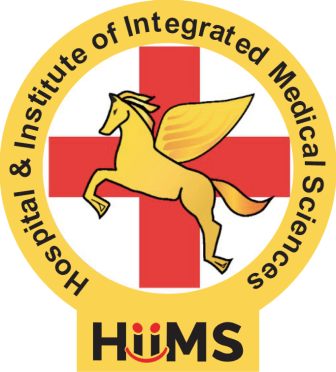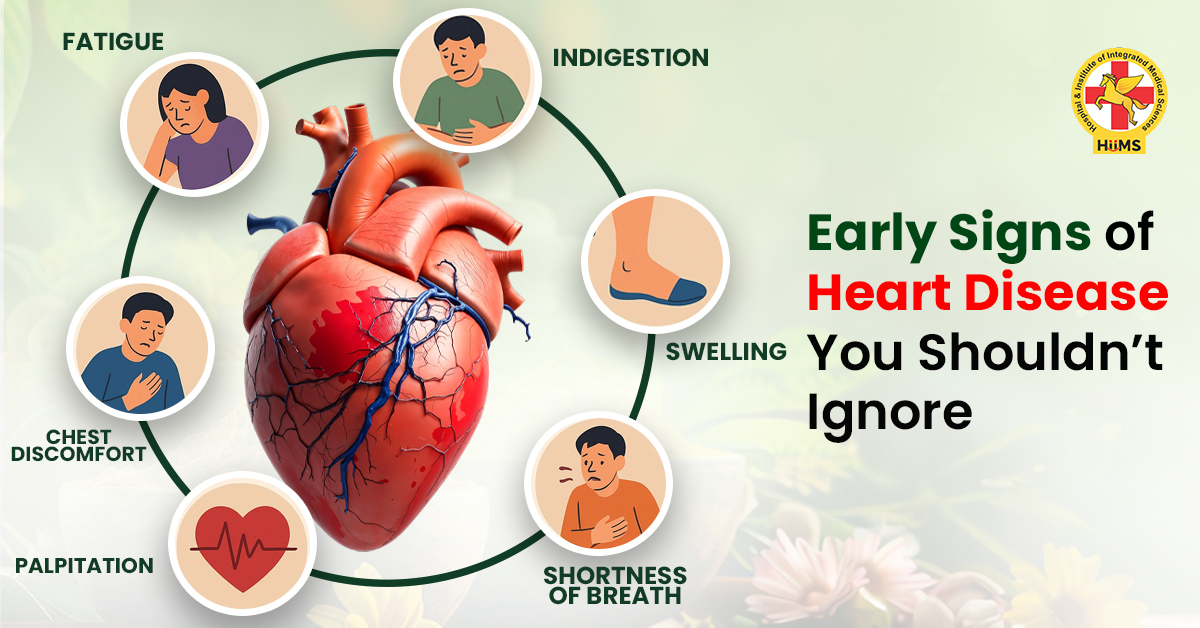Heart Disease affects millions across the world, often in ways that feel quiet at first—almost too quiet. If you look at the statistics, nearly one-third of adults will face some form of cardiac trouble in their lifetime, and what makes it unsettling is how softly it begins. Not sudden drama, not television-style pain, but small irregular things: breath that slips shorter than usual, a tiredness that doesn’t behave normally, an odd heartbeat that stumbles out of rhythm for a second.
Heart Disease is a broad set of disorders that affect the heart’s pumping strength, its circulation, and its electrical rhythm. It grows over years, sometimes decades, building quietly. Many people never realize its presence until those early signs start nudging at them. About 32–35% of adults experience symptoms but fail to notice them early enough. And that’s the hard part: noticing the first hints before they grow louder. The small signs matter. They can change the entire direction of someone’s health journey.
Heart disease symptoms to look out for
-
Unusual and Persistent Tiredness
Fatigue comes in many shapes, but the kind linked to the heart has a peculiar heaviness to it. It doesn’t shout. It lingers. You may finish an ordinary chore, something that normally wouldn’t strain you, and suddenly you feel drained—as if your energy reservoir emptied too quickly.
Sometimes this tiredness appears unevenly; one good day, two slow ones. People often think, maybe I didn’t sleep well, or maybe work is catching up. But when fatigue ignores logic and returns again and again, it could be the body signaling reduced blood flow. Sometimes the heart ends up doing more work than it should, quietly, without any clear change in your routine — and you only notice it through this strange, lingering tiredness that doesn’t match your day.
-
Shortness of Breath During Mild Activity
Breathing is one of those things we never really think about — until it feels oddly tight or a bit harder than it should. When the heart is under strain, even a short walk or a small effort can make the breath feel shallow, like you’re not pulling in enough air. You might climb a few steps and realize your breath falls shorter, or you pause mid-conversation because something feels tight inside.
Sometimes it happens while lying down—a worrying moment where breathing feels slightly uneven. These episodes may come irregularly, which makes people ignore them. But breathlessness without an obvious reason is often one of the earliest signals of trouble.
-
Uneasy Chest Pressure or Mild Discomfort
Early Heart Disease rarely gives the dramatic chest pain we see in movies. Instead, the discomfort is subtle: a pressing, warm, or tightening sensation that floats in and out.
Some people describe it as a band around the chest; others feel it near the shoulders, arms, or even jaw. The confusing part is that it may appear during effort, then disappear once you rest—making it easy to dismiss. But recurring pressure, no matter how gentle, should never be ignored. The heart tries to speak long before it cries for help.
-
Irregular Heartbeats, Uneven Rhythm, or Fluttering Moments
One of the most overlooked signs is a heartbeat that behaves strangely. It may flutter briefly, skip a beat, add an extra thump, or feel like it’s stumbling over itself. These irregularities don’t always hurt, which is why people shrug them off.
But when the rhythm feels off more than once—when it repeats, even slightly—it could indicate the early stage of an electrical imbalance in the heart. Such signs often come in scattered moments, making them harder to track, but they matter.
-
Swelling in Ankles, Feet, or Lower Legs
When the heart struggles to pump efficiently, fluid starts pooling in the lower limbs. At first it looks harmless, maybe just a small puffiness around the ankles. But over time, the swelling grows heavier, sometimes leaving an imprint when you press gently with your finger.
This swelling is slow and sneaky. And because it develops gradually, people usually blame shoes, heat, long workdays—anything except the heart. Yet persistent swelling may be a key sign of early cardiac strain.
-
Digestive Discomfort, Mild Nausea, or Uneven Upper-Abdominal Pressure
It may sound unrelated, but early heart issues often create sensations that mimic digestive problems. Some people feel a burning sensation in the upper abdomen, a strange fullness, or unexplained nausea—especially during physical activity or emotional stress.
These symptoms don’t always follow a pattern; they appear and fade unpredictably, which is why they’re often mistaken for acidity or indigestion. But when the gut feels uneasy without a clear cause, the heart should also be considered.
Causes of heart disease
While we focus on symptoms, understanding the roots helps you connect the dots. Causes of heart disease range from high cholesterol and high blood pressure to long-term stress, diabetes, smoking, family history, and chronic inflammation.
These causes can quietly change the heart’s structure and performance over years—leading to the early signs described above. Most people don’t feel the causes of building; they only feel the effects later.
Comprehensive Healing Beyond Heart Care
At Jeena Sikho HiiMS, the commitment to healing extends far beyond treating heart conditions alone. The medical team works with patients facing a wide spectrum of chronic and difficult illnesses—from serious liver disorders and long-standing diabetes to supportive care for cancer, persistent jaundice, complex orthopedic issues, and even challenges related to infertility and other hard-to-manage problems.
Each case is approached gently but thoroughly, with a mix of clinical understanding and natural therapies that aim to restore balance rather than just suppress symptoms. This wider approach gives many patients a sense of hope, especially when they have tried several treatments elsewhere without real relief.
Conclusion
Early symptoms of Heart Disease are often soft, uneven, and easy to dismiss. But the body rarely sends signals without meaning. A bit of breathlessness. A strange fatigue. A heartbeat that missteps. Small pieces that form a bigger picture.
Catching these signs early can completely shift the future of someone’s health. If you’ve noticed any of them—consistently or even irregularly—it’s worth getting checked. A little attention now protects years of life ahead. The heart deserves that honesty. If any of these early signs feel familiar, you can book a consultation with Jeena Sikho HiiMS for a careful evaluation and personalised guidance.
FAQs
- What is the initial symptom of heart trouble?
Often it starts with feeling tired in a way that doesn’t make sense, or noticing you lose breath quicker than you used to. - Can mild chest pressure indicate a heart issue?
Even a light, nagging pressure in the chest can be the body hinting that the heart is under some stress. - Are irregular heartbeats worth checking?
If those odd heartbeat skips keep coming back now and then, it’s better to have a doctor check what’s going on. - Does swelling in the legs link to the heart?
It might be connected, especially if the swelling slowly becomes more noticeable over days or weeks. - Can early heart disease be managed?
Yes, early detection greatly improves long-term outcomes.

